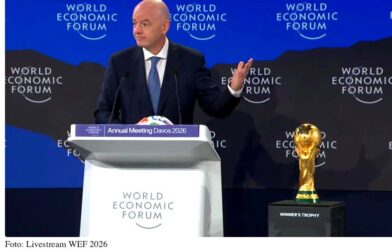A critical look at a recurrent myth
by
Alfredo Cuéllar
In recent years, the idea of an educational crisis centered on boys has gained popularity. It is often claimed that boys, compared to girls, are at an academic disadvantage. This narrative—promoted by conservative figures such as Jordan Peterson and even moderate analysts like Richard Reeves—suggests that the lack of male teachers, the dominance of “radical” female educators, and a school structure that goes against “male nature” are the root of the problem. This is not just happening in the United States; in Mexico and in much of the world, similar scenarios are playing out, where boys show academic lag and disconnection from the dominant school model. But how true is this?
More Evidence
Reading, writing, and language skills in every country assessed by PISA, girls outperform boys in reading comprehension. This pattern is universal and has remained consistent for the past two decades.
Math and science in some countries (especially in East Asia, such as China, South Korea, or Singapore), boys have historically shown slightly higher performance in math. However, in many other countries, the gap has closed or even reversed in favor of girls.
Dropout and school lag rates, globally, boys have higher dropout rates, are more likely to repeat a grade, and have lower levels of consistent attendance.
In contrast, girls have higher high school completion rates and greater access to higher education.
In higher education in almost every country in the world, women are the majority in universities and, on average, earn better grades.
A Narrative Without Evidence
For decades, it has been claimed that boys underperform academically compared to girls. However, research shows that girls have earned better grades than boys since before women even had the right to vote. A 2014 meta-analysis by Daniel and Susan D. Voyer reveals that this gap dates to 1914—long before Title IX or the rise of modern feminism.
Recent studies, such as one conducted in Indiana in 2021, show that female teachers are more successful at improving the performance of both genders, and that boys do not perform better under male teachers, contrary to popular intuition.
Moreover, even research by the Heritage Foundation—a conservative think tank—found no evidence that U.S. teachers are indoctrinating students with radical ideologies.
Unfortunately, I am not aware of comparable studies in Mexico or Latin America. It would be a great contribution for researchers in other parts of the world to focus on these issues.
History Doesn’t Support the Myth
The predominance of female teachers in U.S. schools has existed for over a century—it is not a recent phenomenon. Furthermore, the idea that modern schools are “feminized” spaces that suppress boys’ active nature collapses when we recall that, in the 1950s, both boys and girls had to sit still for hours and faced much harsher punishments than today. And yet, no one then claimed that the system was repressing masculine ambition.
Why Do Girls Perform Better?
According to Daniel Voyer, the differences between boys and girls are not vast, but they are consistent. One possible explanation is gender socialization: boys are often taught that studying is “unmasculine,” whereas girls are not socially penalized for being studious or “nerds”—a term that has no perfect translation in Spanish but refers to those who get good grades and dedicate themselves to academics. Sometimes it’s used with admiration, other times with mockery.
In countries with greater gender equity, like the Scandinavian nations, these gaps tend to disappear.
Also, if women in the household are the ones planning and executing all domestic tasks, they may transfer those skills into organizing their academic responsibilities. Meanwhile, it’s logical that boys, lacking those role models, fail to develop essential organizational skills for academic success. As one student interviewed by Education Week put it: “Guys know that if they slack off, someone else will do it for them.”
A Personal Note
I’ve devoted nearly half a century of my life to university research. During that time, I’ve repeatedly fought against so-called “truths” that lack evidence. One of them was the myth of low academic performance among Hispanic students.
Together with colleagues, we discovered that the problem wasn’t the students, but a system that failed to understand their cultural realities. For many of those children, school was a hostile place: they spoke little English, came from humble homes, and took on family responsibilities that prevented them from doing homework. Instead of support, they received punishment from teachers and administrators who labeled them as lazy or uninterested. The parallel with the current situation of many school-age boys is clear: the difference is not so much biological as it is cultural and structural.
A Warning in the Trump Era
Today, in the face of policy proposals from figures like former president Donald Trump—who attacks universities, discredits experts, cuts funding, and threatens to eliminate the Department of Education—we are living through dangerous times for scientific research, especially in the social sciences.
Truth has been one of the first casualties in Trump’s political strategy. Myths and alternate realities spread with ease, and the lack of evidence is no obstacle to their use as political weapons.
Topics like the supposed “collapse” of boys in education persist because they offer easy targets for those seeking to undermine women’s progress and educational advancement in general. In this anti-scientific climate, only results based on the scientific method can help us distinguish between what is real and what is convenient manipulation.
The Real Challenge
Yes, there are boys and young men who face serious difficulties—both in education and in life. They deserve attention and support. But if we keep diagnosing their problems based on prejudice or emotion instead of evidence, we will never find lasting solutions.
We need better educational policies, more recess, greater understanding of social and cultural differences, and a deep reflection on how we raise and educate all our students—without myths, without misplaced guilt, and with science as our guide. Not only in the United States, but also in Mexico, Latin America, and across the world.
Dr. Alfredo Cuéllar is the father of Micropolitics, an international scholar, and a retired professor from Fresno State University. His articles focus on migration, politics, sociology, culture, and current affairs.Inquiries and comments: alfredocuellar@me.com













